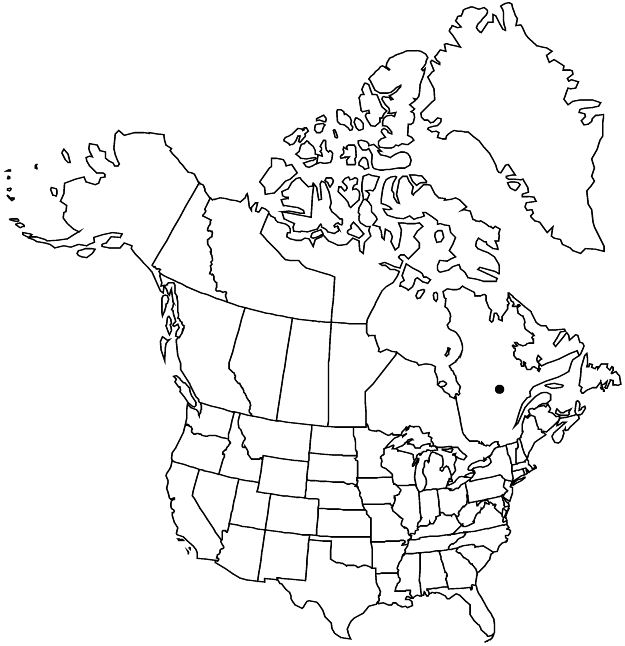Alchemilla glaucescens
Linnaea 14: 134. 1840.
Plants small, gray-green, to 20 cm. Stems densely ascending-spreading-hairy, sometimes sericeous. Leaves: stipules translucent, colorless, sometimes flushed pale wine red proximally, green distally, lobes green; blade orbiculate, rather shallowly 7–9-lobed, margins flat or slightly undulate, basal sinuses closed, middle lobes rounded, as long as to slightly longer than their half-widths; incisions usually absent or relatively short, sometimes relatively long; teeth slightly connivent, slightly asymmetric, apex subacute or almost digitate, surfaces densely hairy. Inflorescences: primary branches sericeous; peduncles sericeous. Pedicels sericeous. Flowers: epicalyx bractlet lengths 0.5 times as sepals (narrower); hypanthium sericeous. Achenes not or exserted to 1/20 from discs.
Phenology: Flowering Jun–Aug.
Habitat: Waste ground
Elevation: 0–50 m
Discussion
In the flora area, Alchemilla glaucescens is known only from Grosse-Ile in the St. Lawrence River.
Selected References
None.
